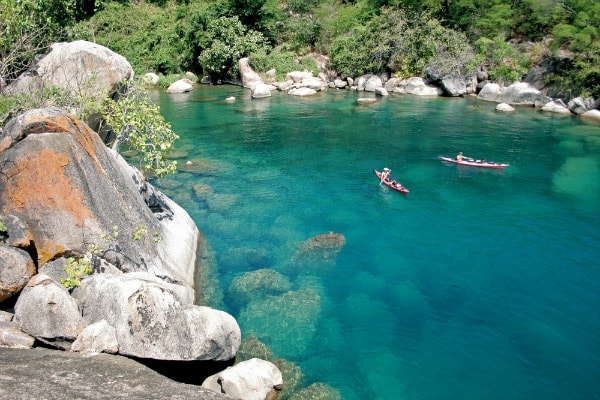Overview:
The most profound lake in Africa is Lake Tanganyika. Situated in the Incomparable Crack Valley, this momentous lake is the second most profound on the planet, following Lake Baikal in Russia. Lake Tanganyika arrives at a most extreme profundity of around 1,470 meters (4,823 feet), making it a critical topographical and natural component in Africa.

Topographical Area and Arrangement: Lake Tanganyika traverses four nations: Tanzania, the Democratic Republic of the Congo (DRC), Burundi, and Zambia. The lake was framed by structural developments along the East African Crack, a locale where the African mainland plate is being pulled separately. This land action has made a profound bowl that has collected water for a large number of years.
Environmental Significance: Lake Tanganyika is famous for its biodiversity. This elevated degree of endemism makes Lake Tanganyika a pivotal site for organic exploration and protection.
Monetary and Social Importance: The Lake upholds the vocations of millions of individuals living along its shores. Fishing is a significant industry, with the lake giving a critical wellspring of protein for neighborhood networks. Furthermore, the lake is an indispensable water asset for homegrown use, horticulture, and transportation. The social variety around the lake is additionally rich, with various ethnic gatherings having lived in the locale for a really long time, each with its own practices and lifestyles.
Ecological Difficulties: Notwithstanding its significance, Lake Tanganyika faces a few natural dangers, including contamination, overfishing, and the effects of environmental change. Climbing temperatures have been connected to diminished oxygen levels in the lake's profound waters, which can influence fish populaces and the general strength of the biological system. Endeavors are continuous to address these difficulties through protection programs and supportable administration rehearses.
All in all, Lake Tanganyika is a characteristic miracle of Africa, eminent for its extraordinary profundity, environmental variety, and social significance. Safeguarding this extraordinary climate is fundamental for keeping up with the biodiversity and vocations that rely upon it.
Read more: What is the deepest lake in North America